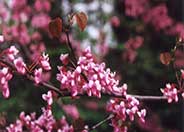
Common name:Eastern Redbud
Botanical name:Cercis canadensis
This small, deciduous tree with a rounded head is covered with small flowers of a rose pink color in the spring before the appearance of heart-shaped leaves. It can grow to 25' tall with an equal spread. It has a low branching habit with a rounded form. Leaves turn yellow green in the fall.

Common name:Hidcote English Lavender
Botanical name:Lavandula angustifolia 'Hidcote'
This is a slow growing lavender that grows to 1' tall with deep purple flowers. It is drought tolerant and attracts hummingbirds and butterflies. -Cornflower Farms

Common name:Sea Pink, Common Thrift
Botanical name:Armeria maritima
This clumping, grass-like perennial is native to many areas, including coastal CA. Its flowers range from deep rose pink through white. -Monterey Bay Nursery
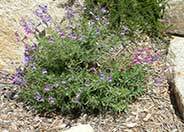
Common name:Foothill Penstemon
Botanical name:Penstemon heterophyllus
This perennial will grow 1.5'-2' tall and 2'-3' wide. It has glossy, blue green foliage with flowers that vary in color and bloom from spring through early summer.
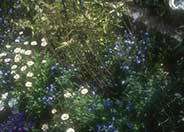
Common name:Miniature Marguerite
Botanical name:Chrysanthemum paludosum
Chrysanthemum paludosum is an annual in Alaska. In the summer, it bears white flowers resembling miniature Shasta daisies on 8"-10" stems.
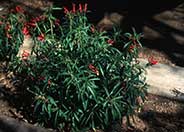
Common name:Red Mexican Lobelia
Botanical name:Lobelia laxiflora
This Lobelia is a very showy, shrub-like perennial, growing to 2'-4' tall. It spreads by underground rhizomes. It has bright, tubular, orange-red summer flowers with yellow orange throats. It can tolerate low water conditions. Hummingbirds love this Lobelia. It thrives in wet soil but does not require it. This is the most tolerant of Lobelias for full sun sites.
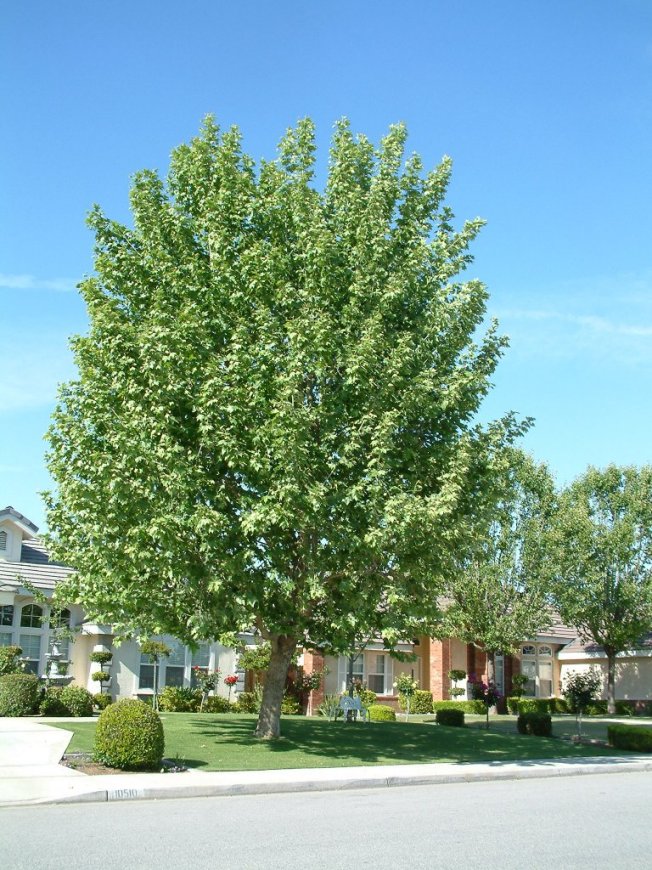
Common name:California Sycamore
Botanical name:Platanus racemosa
The California Sycamore is a fast growing deciduous tree that reaches up to 40'-50' high. It tolerates heat, smog, and drought conditions as well as moist conditions; it is native to riparian areas. It has interesting mottled bark when the tree is bare in winter.
Photographer: GardenSoft
Maintain a two to four inch layer of mulch on the soil surface to reduce weeds, infiltrate rain water, and reduce compaction.
Water-wise plants can be beautiful as well as practical.
Take your 'My List' Hydrozone Report to a landscape designer, or local nursery, when selecting and purchasing plants.
Drip and other smart irrigation delivers water directly to roots, allowing no excess water for weeds.